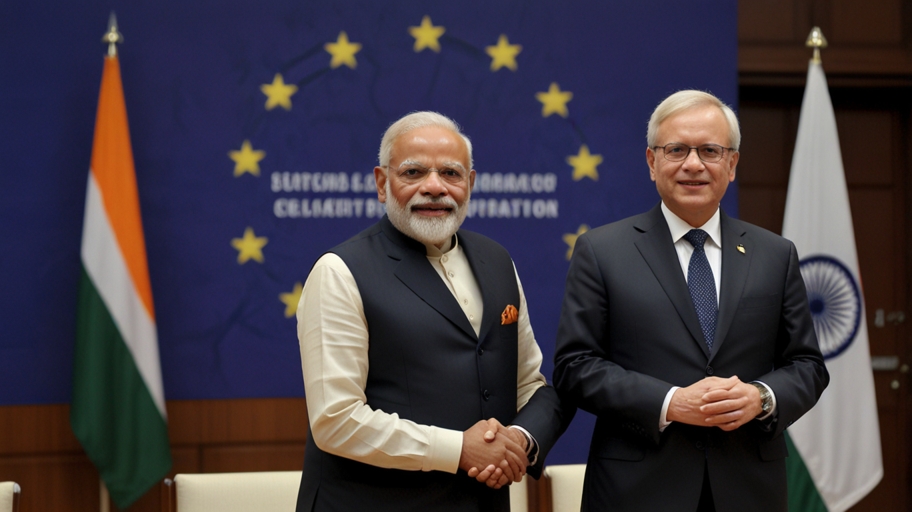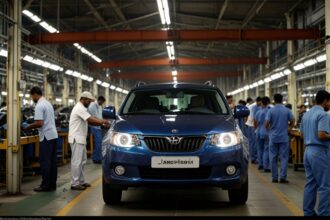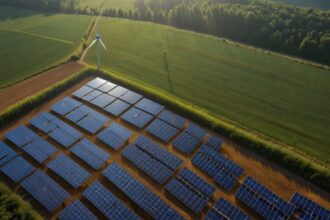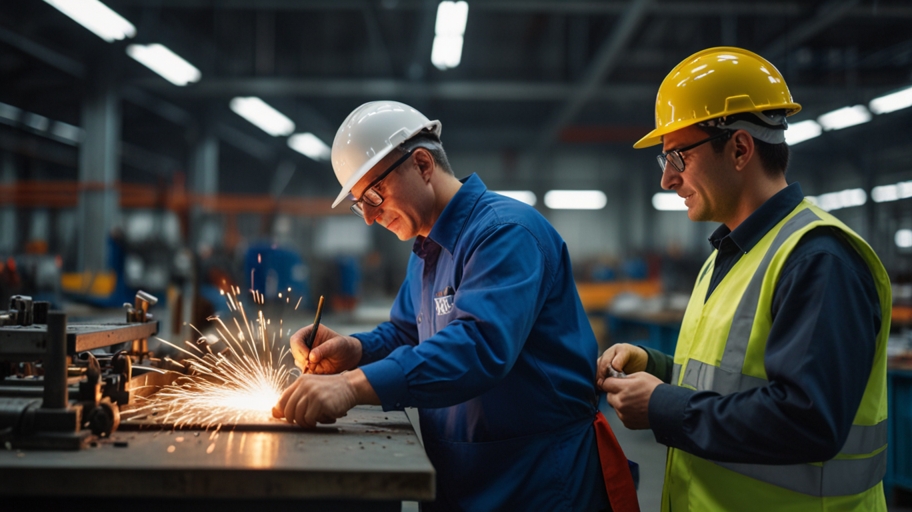In a very high-profile diplomatic feat, the Europan Union has decided to take new and daring steps to build a deeper and stronger strategic partnership with India, including the recently ended visit of the entire EU College of Commissioners to New Delhi.
It is a move that has never been made before in the field of foreign policy, which chalks up to the rise of India in the European Union’s geopolitical calculations and opens up a new era in the relationship between the two democratic powers.
The Indian Premier and President of European Commission Ursula von der Leyen conducted a wide-ranging dialogue, trade, regional security, climate change, and also – technology, being the most crucial. The parties, as interested participants, not only pledged their commitment to the development of their mutual relations but also promised to cooperate and confront common global problems.
The most notable accomplishment of this diplomatic engagement was the EU’s decision to be a part of the Indo-Pacific Oceans Initiative (IPOI), which was initiated by India in 2019 for the purpose of developing cooperation and a rules-based order in the strategically very significant Indo-Pacific area.
The move indicates that the EU is getting more and more attracted by the region and that it may wish to play a more active role in the region and bring its interests closer to those of India.
As the EU and India are both involved in the strengthening of their bilateral ties, the geopolitical landscape is also changing with the two blocs looking to new partnerships and reducing their dependence on the traditional ones. Practically, a closer link between Europe and India gives the EU a chance to boost its position in Asia and tackle China’s bold steps in this region.
For India, being on better terms with the EU is a crucial element of the network of relationships with the neighboring countries which is surely complicated and a chance to start new things in economic and technologic cooperation. The partnership also conforms to India’s vision of a multipolar world order and its desire to become a significant player in global politics.
The trade and economic cooperation were the most important topics that came up during the talks between EU and Indian officials. On both sides, it was declared that they will focus on advancing talks on a complete free trade agreement that would perceptibly boost bilateral trade and investment. The EU, as a group, is already a big player in the Indian market, and a successful deal can take it to a much higher level of relations.
One another very important issue was the technology and innovation as the basis for collaboration, everybody acknowledging the potential cooperation in sectors viz. artificial intelligence, quantum computing as well as green technologies. The EU knowledge as regards legislative frameworks and India’s developing tech sector open doors for mutually beneficial ventures that can, in turn, be a source of change in innovation and economics.
Around the issue of climate change and environmental sustainability, both India and the EU voiced their strong commitment to staying on target and making that transition successful during the visit of the EU delegation. Both India and the EU have set high goals to limit greenhouse gas emissions and be totally dependent on renewable sources of energy.
The dialogues were also about reinforcing cooperation through approaches such as clean energy technology, sustainable urban development, and biodiversity conservation.
The dimension of strategy in the EU-India partnership was highlighted in talks about regional security and global governance. Keeping in mind their commitment to a rules-based international order, the two sides expressed concern over the emergence of fresh conflicts in different parts of the world. The EU’s decision to take part in the IPOI is viewed as an authentic move towards more cooperation on maritime security and other regional issues.
Although the EU and India are forging ahead in their stronger tie-ups, the challenge is still there. Discrepancies in the scope of the regulations, market entry issues, and divergent views on certain international issues will have to be addressed by means of a continuous political dialogue and through the common ground of the parties, as well as the realization that compromise is always a part of the solution to their differences. The joint commitment to democracy transparency, economic development, and global peace offers the best base to be able to get through these impediments.
The enhancement of the EU-India association is a big change in the world diplomatic system. The partnership has the potential to be the game-changing factor in the future in the Indo-Pacific region and even much further than that, as the world is going through a new balance of power and the traditional alliances are deeply examined.
The next few years will be crucial to resolve the question of whether the reinvigorated cooperation can be translated into tangible benefits for both parties and be a contribution to a more peaceful and prosperous world order.





